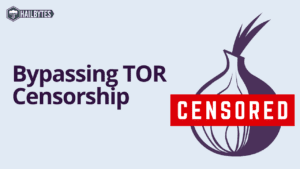Email Security as a Service: The Future of Email Protection

Introduction
Let me ask you a question: what do you think is the number one method of communication used by businesses, employees, students, etc.? The answer is email. You include it in most of your professional and academic documents when trying to communicate. It’s estimated that over 300 billion emails are sent daily with 60 billion of those being spam. In fact, there are over 4 billion active email users in the world. This makes having a secure method of sending emails vital to an efficient and functioning society. Cyber threats (and attacks that can compromise sensitive information, disrupt operations, and damage reputations) can be easily sent to large groups of users using bots. The solution to this is email security as a service. This article will walk you through what email security as a service is and how it helps.
What is Email Security
Email security refers to the protection of email communication and data from unauthorized access and cyber threats. It involves measures and technologies that ensure the privacy, integrity, and authenticity of email messages. This includes encrypting emails to keep them private, using secure protocols to prevent interception, verifying the identity of senders, detecting and blocking malicious emails, and preventing data leaks. By implementing strong email security measures, individuals and organizations can safeguard their communication, protect sensitive information, and defend against cyberattacks.
How Email Security Helps
The biggest weakness of email communication is that anyone can send and receive emails if he or she has a valid email address. This makes users extremely vulnerable cyber threats disguised as emails. Email security combats this by including anti-malware and anti-spam filters that detect and block malicious software, viruses, and spam emails. These measures help prevent phishing attacks, malware infections, and other email-based threats that can compromise the security and integrity of email systems.
Conclusion
Implementing email security measures is how organizations and individuals can significantly enhance the confidentiality, integrity, and availability of their email communication. They can protect sensitive information, prevent unauthorized access and data breaches, and mitigate the risks posed by email-based threats, thereby ensuring a more secure and reliable email environment.







